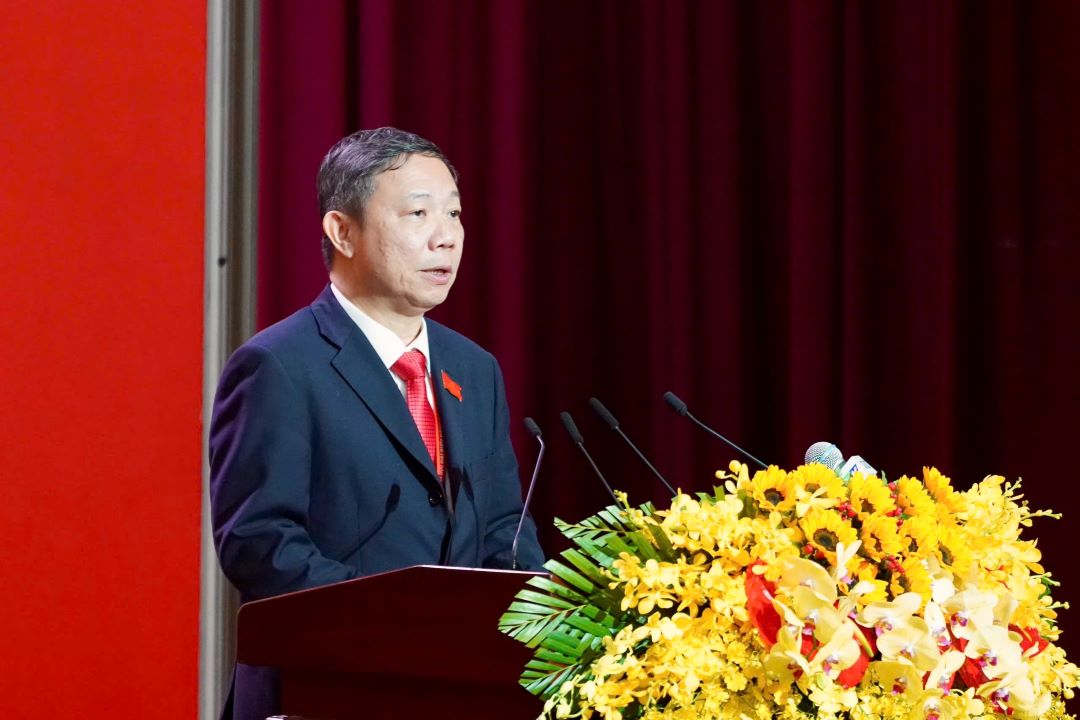HCMC – Delegates from the HCMC Party Committee have proposed adding targets and mechanisms to strengthen Party organizations in private and foreign-invested enterprises, as part of feedback on draft documents for the 14th National Congress of the Communist Party of Vietnam.
At a preparatory session of the city’s first Party Congress for the 2025-2030 term on October 13, Duong Anh Duc, member of the Standing Committee of the HCMC Party Committee and head of the Propaganda and Mass Mobilization Commission of the HCMC Party Committee, presented the city’s consolidated recommendations.
Delegates said the new drafts were carefully prepared and reflected the spirit of reform and objective assessment of the country’s development. They proposed that the documents further emphasize innovation, sustainable growth, and the Party’s leadership role in building an independent and self-reliant economy while promoting deeper international integration.
Delegates suggested recognizing green, digital, and circular economies, along with innovation, as new drivers of sustainable growth. They also proposed including the principle that people should remain the center, goal, and key driving force of development.
Delegates called for more comprehensive assessments of the Covid-19 pandemic’s impact, global economic changes, and Vietnam’s progress in digital transformation and science and technology. They also urged stronger reforms to improve labor productivity, simplify administrative procedures, and boost the mobilization of social resources.
Several lawmakers highlighted the need to address challenges from the Fourth Industrial Revolution, artificial intelligence, global conflicts, and the lack of coordination among ministries and localities. They suggested adding forecasts on trade, nationalism, human rights, and non-traditional security issues, along with references to key Party Central Committee resolutions.
A key proposal was to assign specific targets and provide support policies for developing Party organizations in private and foreign-invested enterprises. Local authorities should be tasked with measurable goals, and underperforming Party cells should receive assistance to maintain and strengthen their activities.
Delegates also recommended adding worker welfare objectives to the 2025–2030 socio-economic development strategy, including the creation of service ecosystems to support factory workers in new economic zones.
Regarding Party building, representatives called for upholding democratic centralism and renewing education on Marxism-Leninism and Ho Chi Minh’s ideology. They proposed encouraging internal debate, improving accountability at the grassroots level, and using digital transformation to strengthen transparency and public oversight.
Delegates also emphasized the importance of maintaining integrity, fighting corruption and wastefulness and recovering misappropriated assets effectively. They said these efforts would strengthen the Party’s leadership capacity and build greater public trust.
The feedback from HCMC’s Party organizations and citizens will be incorporated into the revised drafts for the 14th National Congress of the Communist Party of Vietnam, which will define the country’s development direction through 2045.









